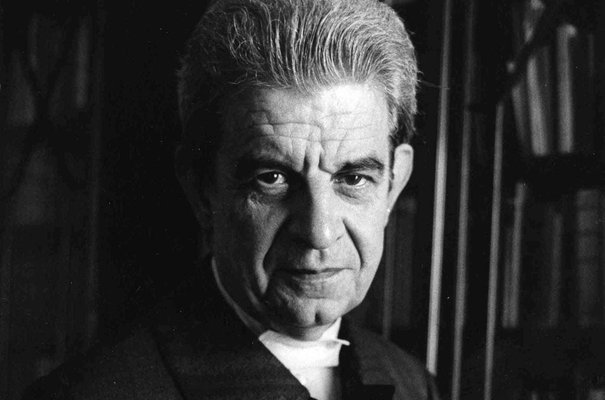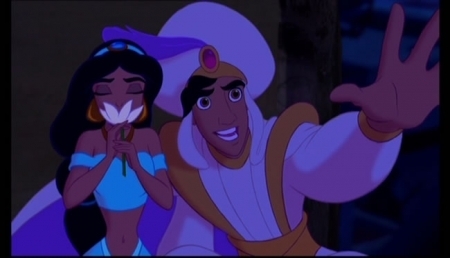For the chapters in my class' ebook that I'm working on, I've been missing one key element: research. Because of this, our professor ran us through a few different ways of gathering research for this particular project, and that includes a whole lot more than just traditional scholarly sources! So here's my working bibliography for some of the digging I've done. For the sake of my research and not wanting to totally overwhelm myself, I decided that on the social networks area I would focus my research through Twitter. Obviously there's much more out there in the realm of social networking, but sometimes it's best to focus on one thing at a time!
Harry Potter and the Magic of the Internet
Tweethis: “It’s difficult to navigate literature through digital platforms, but it’s possible to feel at home in this new world.”
Social Graph:
Talking to my mom: It's goes in spurts, she used Goodreads it more in the beginning, but not so much now. She forgets she's on it, and usually just checks it when she gets a notification of someone joining or specific activity on there. If there was a link to it in her sight more she would use it more. Maybe more frequent notifications in her email, or being connected more with the social media she already uses would help her remember it.
This seems to be a general thing that needs to be addressed. I've also sent out a few messages to some family and friends about their usage of Goodreads, but people are kind of a pain sometimes and don't always respond when I actually need them to respond. So naturally I threatened to kill them if they don't answer.
New Media: In light of new media, I went to youtube which is blessed with a plethora of tutorials on how to use Goodreads! One of the most helpful was
this one that really outlined the basics. There was also
this one that is interviewing the Director of Author Marketing and Community Manager for Goodreads on the use of Goodreads for authors.
Social Networks: In this realm, I think the most helpful resource on Twitter is Goodread's own personal twitter: https://twitter.com/goodreads
When people have questions for them, they respond with answers or links to help people out. This makes it much more personable for the user and is a good way for people to not feel so disconnected from the fact that Goodreads is digital.
Traditional Scholarly Sources:
http://www.emeraldinsight.com/doi/full/10.1108/07419050810949986
The Language of Reviews
Tweethis: How to use book reviews on different Ebook platforms, and why they're important.
Social Graph: I reached out to an author that I've known for a few years, Julie Wright, and asked her of the importance of online reviews. This is what she told me: "I believe online reviews are important because they allow people to make educated decisions on their reading material. If a person has a friend they trust to lead them well in their literature choices, being able to follow that friend on goodreads and see their reviews might steer them toward books they might otherwise have never noticed. As an author, reviews are a blessing and a curse. A good constructive critique of a book can help an author grow in their craft. But sometimes reviewers use the review process to snark on novels in an effort to entertain their own followers, instead of informing their followers. For an author reading such a review, nothing positive is gained. A bad review can make it hard for an author to get into the emotional headspace they need to create their new book because the author is so depressed. A good review can make it hard for an author to get into the emotional headspace they need to create their new book because they are so elated. In other words: Reviews are important and good for readers and *can* be good for authors because they can gain them new readers. But authors have no business reading reviews of their books. They need to be writing new ones instead of obsessing over works no longer in their control. (it would be nice if I took my own advice and never read my reviews)"
New Media: Interestingly enough, I've discovered that the main topic with online reviews right now revolves around self publishing and the way that reviews help it move forward. I can you some of that information in lieu of why reviews are important, but I also need more than that. It's been a little frustrating, because almost all I can find on reviews are about getting more reviews for books, even on youtube all I could find were tutorials for either how to post a review on Goodreads or Amazon, or how to get more reviews. I also found some videos of people reenacting reviews they found interesting which did provide for some entertainment.. I searched for podcasts on this, but all I found were reviews for specific books. I did find
this thread on Goodreads, but it is a bit outdated as the last posts were in 2012. However, I also found this
bloggish thing about reviews that I really liked from last year. I'm going to keep looking.. there has to be relevant new media somewhere.
Social Networks: When searching Twitter in respect of Amazon and Goodreads reviews, there's most obviously the personal Twitters for Amazon and Goodreads, and then there's author's promoting their books with reviews, as well as people connecting the reviews they've done through these platforms on different books. Not necessarily through Twitter, but on Goodreads I found a Goodreads group that links both together for all people, as well as there's a conversation thread on there for people to link their own personal Twitters together. It's advertised as a place for indie authors and readers, to help both out, as well as discussing problems people have had with reviews on Amazon as well.
https://www.goodreads.com/group/show/100482-genre-specific-review-groups
Traditional Scholarly Sources:
http://www.sciencedirect.com/science/article/pii/S0167923608000754
 At first I think it was difficult, everyone had their own ideas of what should and shouldn’t be included, how it should be formatted, who was in charge of what, as well as so many other issues. But as we began to actually communicate with each other and realize the importance of (the dreaded) peer editing process, we began to learn and grow together as a class instead of trying to learn individually, which would have failed. While it stretched us all, the fact that we had to rely on and help each other ultimately created unison throughout our ebook while still maintaining each individual identity and opinions. The work wasn't always evenly distributed, and this did cause some issues, but we had some kick butt people who really took their work into stride even when they were overwhelmed. This project never would have worked though if each of us hadn't buckled down and opened ourselves up to criticism and critique from our professor but also each other.
At first I think it was difficult, everyone had their own ideas of what should and shouldn’t be included, how it should be formatted, who was in charge of what, as well as so many other issues. But as we began to actually communicate with each other and realize the importance of (the dreaded) peer editing process, we began to learn and grow together as a class instead of trying to learn individually, which would have failed. While it stretched us all, the fact that we had to rely on and help each other ultimately created unison throughout our ebook while still maintaining each individual identity and opinions. The work wasn't always evenly distributed, and this did cause some issues, but we had some kick butt people who really took their work into stride even when they were overwhelmed. This project never would have worked though if each of us hadn't buckled down and opened ourselves up to criticism and critique from our professor but also each other.









